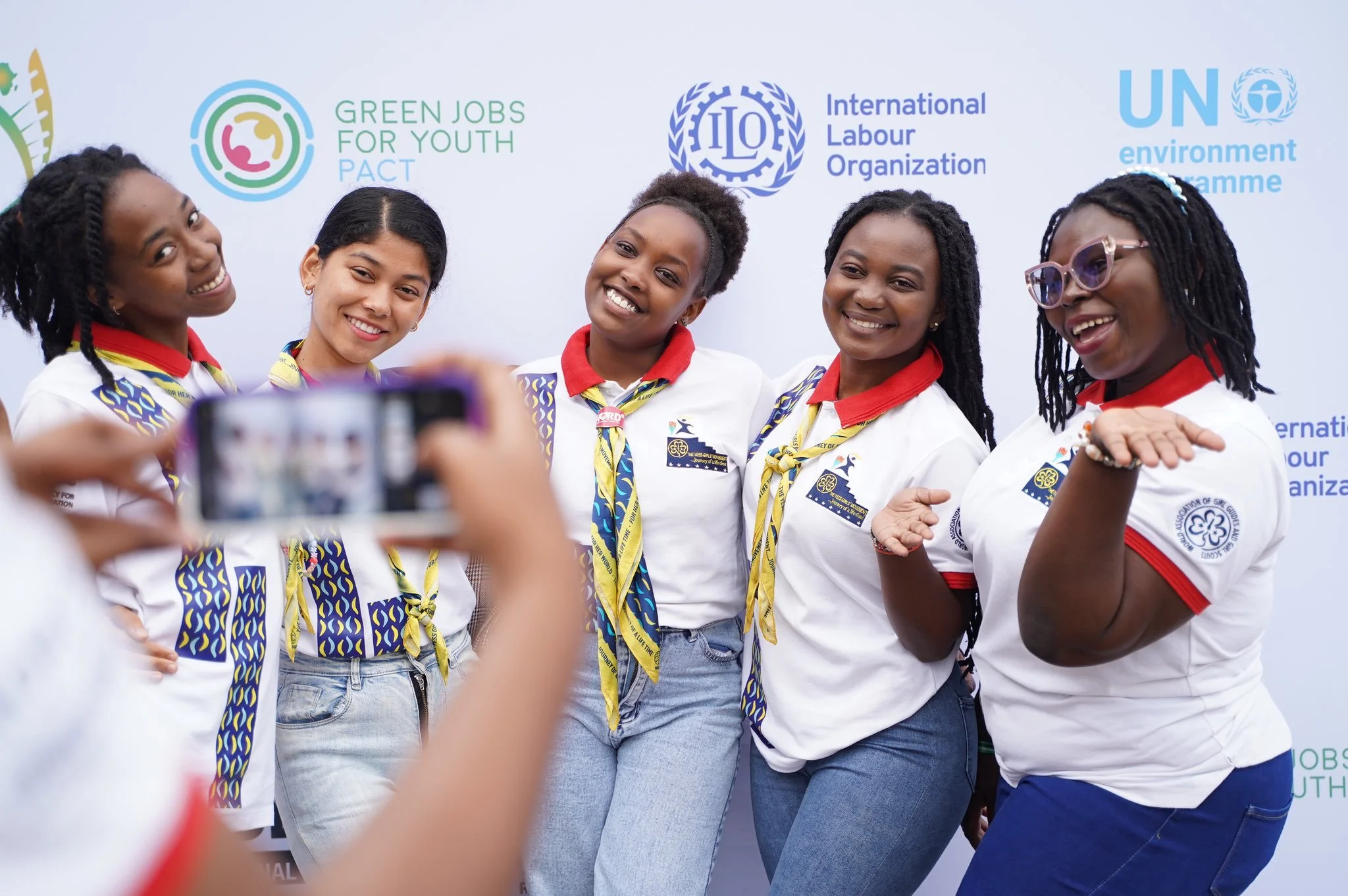The primary audience for this Global Guidance document is the higher education community. However, other educators, nongovernmental organizations (NGOs), governments, employers and youth organizations will find this document useful for strategic planning and collaborative efforts with higher education and each other.
“A JUST TRANSITION CREATES
DECENT WORK OPPORTUNITIES
FOR ALL AND ENSURES THAT
SOCIAL PROTECTION EXISTS
WHERE NEEDED. IT ALSO
INCLUDES MECHANISMS FOR
SOCIAL DIALOGUE FROM THE
PRIVATE SECTOR AND WORKERS’
UNIONS THROUGHOUT
POLICYMAKING PROCESSES AT
ALL LEVELS”
It provides an overview of the topic, with connections to many resources, and it includes key actions for educators preparing students to participate in the just transition to a green and more inclusive economy. These actions are essential to prevent large-scale human suffering due to climate instability, ecosystem degradation and economic disruptions.
This document also includes vetted resources for senior administrators, curricular developers, organizational staff, educators and employers. These key actions and resources support an emerging international trend in curricula and research to emphasize problem-solving for the SDGs. It builds upon preexisting strategies for education (e.g. UNESCO/ UNEVOC ) and the current work on greening the workforce (e.g. green jobs publications from ILO_ and green jobs resources from the Partnership for Action on Green Economy – PAGE ).
It also supports the fulfilment of national and international commitments and aligns with other resource documents (e.g. The Paris Agreement, the UNESCO Integrating Action for Climate Empowerment into Nationally Determined Contributions, and the UNESCO Education for Sustainable Development Roadmap


